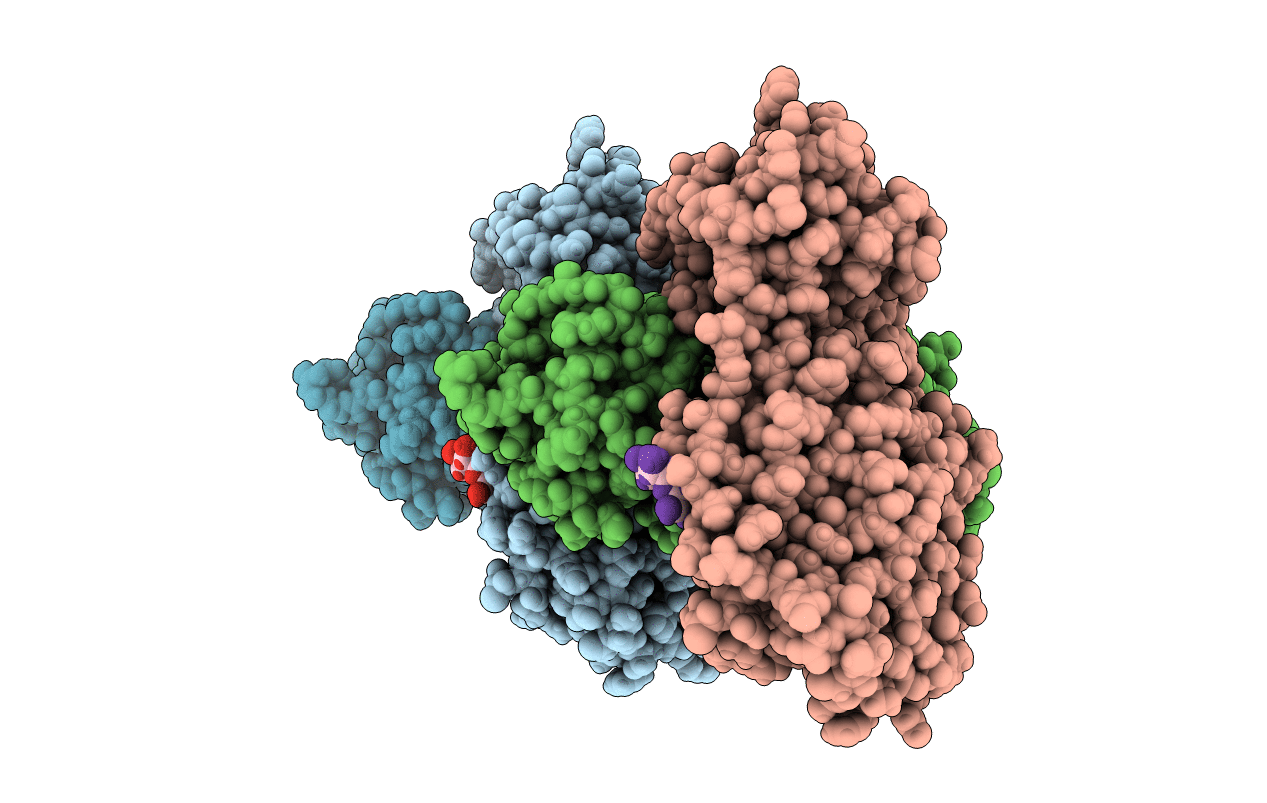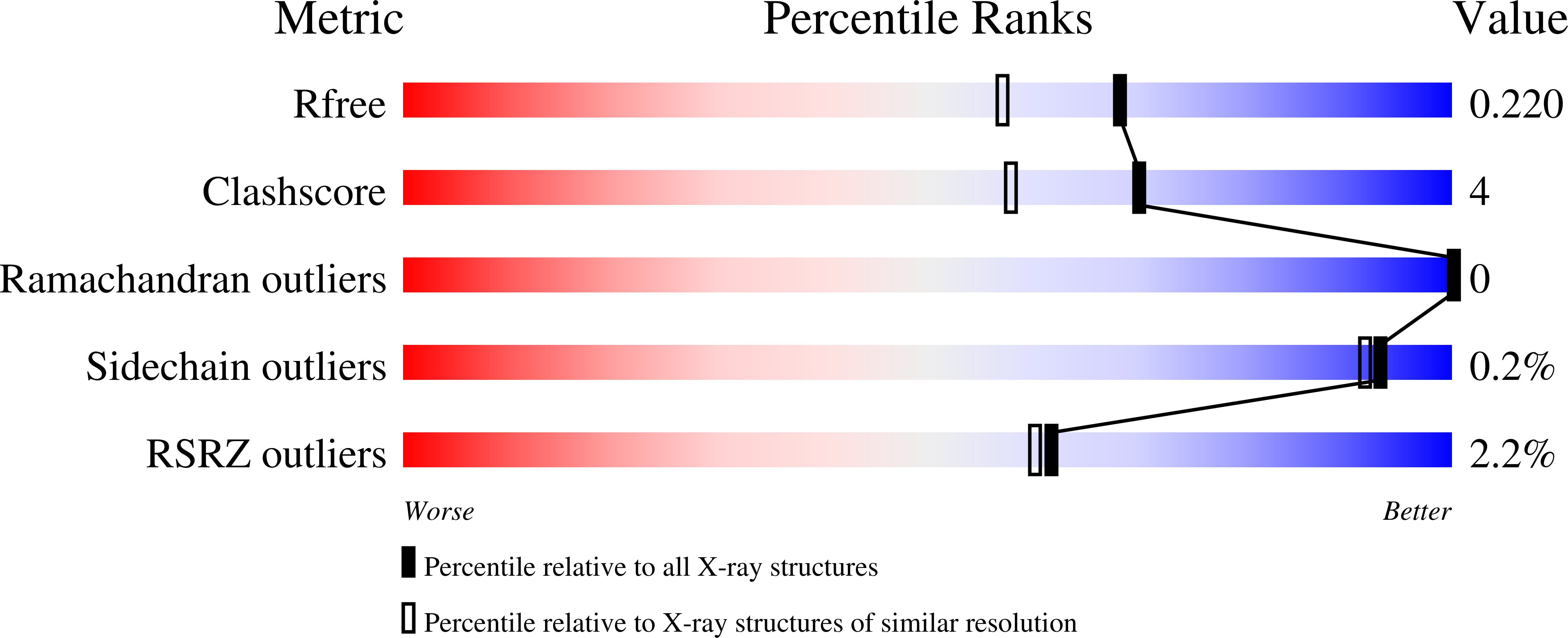
Deposition Date
2021-03-31
Release Date
2022-06-22
Last Version Date
2023-10-18
Entry Detail
PDB ID:
7MB4
Keywords:
Title:
SARS-CoV-2 Main Protease (Mpro) C145A in Complex with Cleavage Site Nsp4/5 (P6-P1)
Biological Source:
Source Organism(s):
Expression System(s):
Method Details:
Experimental Method:
Resolution:
1.83 Å
R-Value Free:
0.22
R-Value Work:
0.17
R-Value Observed:
0.17
Space Group:
P 1 21 1


